As Iran approaches the runoff stage of its snap presidential election, the nation stands at a crucial crossroads.
In less than a week, voters will choose between Masoud Pezeshkian and Saeed Jalili to lead the Islamic Republic's executive branch.
This report, part of a series of articles about the contenders, examines the foreign policy stances of the two final candidates and explores what Iran might face over the next four years.
How do they plan to deal with international sanctions?
| Pezeshkian | "I will lift the sanctions by normalizing relations and adopting a collaborative policy approach." |
| Jalili | "I will neutralize the sanctions through economic measures and make the enemy regret imposing sanctions." |
Masoud Pezeshkian, the reformist candidate, believes that by improving relations with other countries and normalizing international relations, it is possible to lift sanctions, attract investment, develop tourism, and enhance business opportunities.
He asserts that a dignified and interactive foreign policy can reduce people's expenses and prevent exploitation by groups using populist slogans.
He says, "We have to solve the sanction problem by using expert and experienced forces."
On the other hand, Saeed Jalili, a candidate from the Islamic Revolution Front, believes in neutralizing the sanctions and making those who imposed them regret their actions.
He says, "We created a committee to deal with sanctions. We must make the enemy regret the sanctions through economic means, and we have an action plan for that. We say that with serious mechanisms, sanctions can be removed, and those who imposed sanctions will regret it."
Beyond offering solutions to the sanctions, the candidates must recognize sanctions as a significant challenge to the country's economic and security development.
Do they view sanctions as a crisis for the nation?
Masoud Pezeshkian emphasizes the need to address the sanctions to resolve economic problems and improve international relations.
He believes sanctions cost Iran billions of dollars annually.
"Right now, we are the top country in the world for gas and oil reserves, yet we cannot provide gas to people in the winter or electricity in the summer," he says.
"Qatar, Oman, UAE, and Kuwait take their share in common fields, but we do not while claiming certain companies want to collaborate with us."
He adds, "Today, investors are withdrawing money from the country. They are upset because they buy high and sell low, and sometimes their money is lost. Utopia can be created in theory, but in practice, people's lives are being destroyed."
Saeed Jalili does not acknowledge sanctions as a challenge.
Instead, he believes that Iran should seek partnerships beyond the problematic few - the US and the European Union.
He says, "The first problem is focusing on the two or three countries with which we have the most differences. They create threats, not opportunities. We must see all countries. There are many countries we cooperate with, but we need to prioritize the economy and understand our economic goals."
He does not address which country is willing to invest in Iran or establish fair business relations without first resolving the US sanctions issue.
What policy will be pursued to address Iran's nuclear program?
| Pezeshkian | "The nuclear deal is advantageous. Other foreign policy problems could not be solved without the deal being finalized." |
| Jalili | "Following the agreement, the Rial exchange rate rose from 3,000 to 30,000 tomans per dollar, and economic growth turned negative." |
Masoud Pezeshkian views the 2015 nuclear deal as pivotal in resolving Iran's sanctions and other foreign policy challenges.
He advocates for the revival of the deal, emphasizing, "We should have resolved and continued with the nuclear deal. Without addressing this issue, discussing other matters is mere rhetoric."
Pezeshkian believes that maintaining and enhancing relations with neighboring countries hinges on the nuclear deal.
On the contrary, Saeed Jalili, representing a faction that opposed the deal in parliament, openly rejects the agreement.
He argues that the deal has exacerbated challenges without yielding benefits, questioning its outcomes.
"During the deal, the currency exchange rate rose from 3,000 to 30,000 tomans per dollar. The number of sanctions increased from 800 to 1,500. Have these actions solved the people's problems?"
In reality, Jalili's criticisms appear to rely on misinformation. During the initial two years of the deal's implementation, Iran achieved unprecedented economic growth rates of 12 to 14 per cent.
Foreign investment reached record highs, and Iran purchased planes directly from Airbus for the first time since the 1979 Islamic Revolution.
The inflation rate also dropped to its lowest levels in decades.
What actions would be taken regarding the FATF blacklist and access to SWIFT?
| Pezeshkian | "We should finalize FATF." |
| Jalili | "We bought vaccines without FATF, it has no impact." |
Masoud Pezeshkian strongly advocates for Iran's acceptance of Financial Action Task Force regulations and the removal of Iran from FATF's blacklist.
He argues, "Finalizing FATF is essential because our current situation involves buying high and selling cheap. Despite agreements with countries like China, their lack of action stems from our unresolved international communications issues, which is abundantly clear."
Pezeshkian emphasizes the need for Iran to meet international standards to effectively engage with partners like China, Iraq, and Russia, despite Iran's membership in BRICS and the Shanghai Cooperation Organization.
In contrast, Saeed Jalili dismisses FATF as irrelevant to Iran's foreign policy challenges and uses misinformation to support his stance.
Jalili questions, "When the government spokesperson claims sanctions and FATF hinder vaccine purchases affecting millions, how did we manage to buy vaccines?"
He criticizes the partial implementation of FATF clauses by Iran, asking, "If Iran adheres to 32 of 41 FATF clauses, why hasn't it solved our issues?"
Jalili's stance appears to evade the reality that Iran must fully comply with FATF regulations to be removed from the blacklist, which currently restricts Iran's international financial transactions through SWIFT.
His opposition within the Supreme National Security Council to accepting FATF, despite revealing potential personal and factional motives, suggests a possible shift if elected, as indicated by Mostafa Pourmohammadi's revelation of Jalili's obstructionist role.
How do they attract foreign investment?
| Pezeshkian | "Enhancing the investment environment through normalized international relations." |
| Jalili | "Attracting new markets for vegetables and flour exports by transforming embassies into export platforms, thereby creating employment opportunities for skilled individuals." |
Masoud Pezeshkian asserts that foreign policy should attract foreign capital and dissuade migration, fostering youth retention through interactive diplomacy and normalized international relations.
He says, "It should be known who climbed the British embassy and set fire to the Saudi embassy and why this was not stopped."
Pezeshkian argues for strengthening brotherhood with neighboring countries, viewing them as opportunities.
He advocates transforming Iran into an east-west transit axis and boosting tourism.
Regarding domestic investment, he says, "Are the elites leaving the country? Because of our ruling behavior and the commands and prohibition."
Saeed Jalili focuses on neighboring, Latin American, and African countries, proposing, "Iran can import wheat from India and export flour to Iraq, or export $11 billion worth of vegetables annually."
He outlines a strategy to convert embassies into export platforms, saying, "Each of our embassies should be a platform for exports and have a mission to create employment and earn currency."
Jalili supports managing international relations during embassy attacks, stating, "The cost of attacking embassies can be controlled with proper diplomacy."
He does not object to Basij attacks on embassies.
Jalili advocates for a foreign employment policy utilizing tourism and transit for income, saying, "Our country has a very good position and can become a regional hub in some goods."
However, he does not clarify how to resolve interbank financial transactions without addressing sanctions and SWIFT access.
Concerning scientist migration, Jalili says, "The migration of these scientists is because you could not create a market for them."
Axis of Resistance, Accusations of Supporting Terrorist Groups, Conflicts with Israel, and the Missile Program
| Pezeshkian | "I will never accept usurping or occupying other people's land, nor will I tolerate genocide or racism." |
| Jalili | "Our rightful youth went to the region and resisted, and now we should focus on establishing strong economic relations with Syria and Pakistan." |
The realm of the Axis of Resistance in the Middle East and the volatile nations of Syria, Lebanon, Iraq, and Yemen represent a red line for the Islamic Republic, with candidates typically showing caution and offering fleeting answers.
Masoud Pezeshkian initially avoided delving deeply into this field, focusing instead on principles such as "I will never accept the occupation of others' lands nor tolerate genocide and racism."
When discussing his foreign policy in this region, he says, "My government's approach towards oppressed people will be guided by Iranian cultural values and the teachings of Amir Mominan [first imam of Shia Muslims], emphasizing brotherhood in religion and equality in humanity."
Saeed Jalili also did not extensively address this area, saying, "We have had significant cooperation within the Resistance region, where our youth have participated in defense and resistance for what is right.
"Today, our economic relations should be balanced, and we should have the strongest economic ties with neighboring countries, including Pakistan and Syria."
While Iran's foreign policy is primarily shaped by the Supreme Leader rather than by the government, presidents wield considerable influence through diplomatic channels.
Governments advocating de-escalation and normalization tend to negotiate differently from those promoting tension and an anti-Western stance.
Choosing between candidates like Pezeshkian or Jalili signifies opting for either an interactive foreign policy or one that may exacerbate tensions.




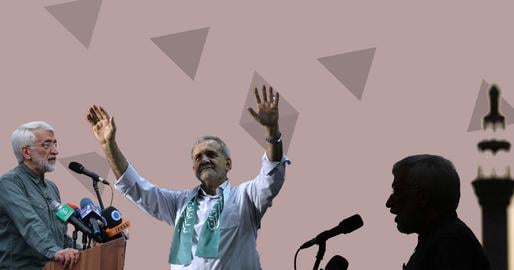
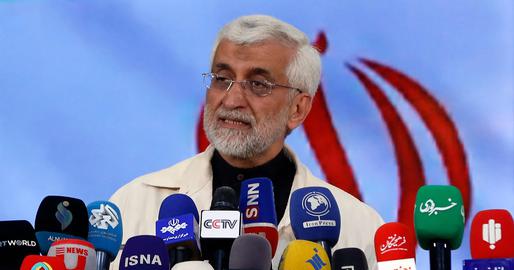
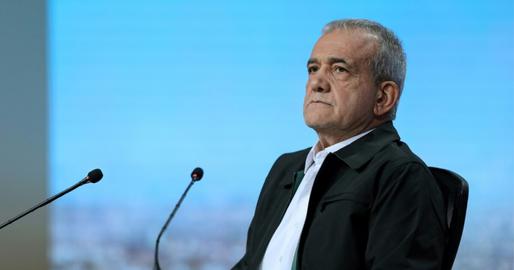






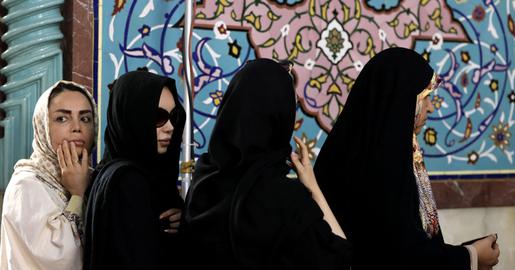


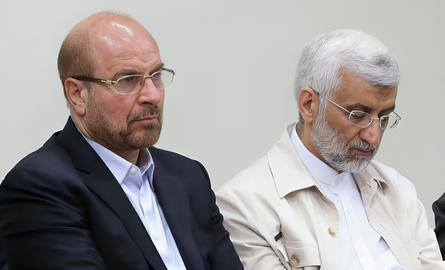






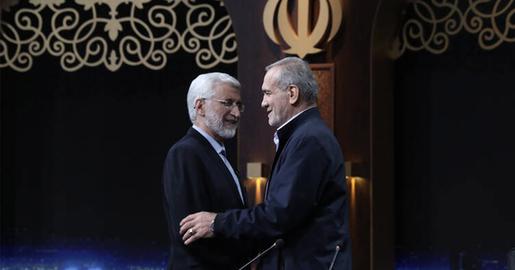
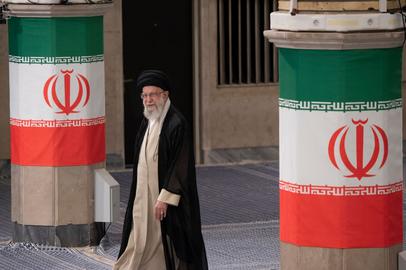
comments